House of the Dragon Sky Atlantic/Now TV
The Accused: National Treasures on Trial Channel 4 | All 4
Welcome to Wrexham Disney+
Lion: The Rise and Fall of the Marsh Pride BBC Two | iPlayer
Well, here we are: the long-awaited prequel to the fabled Game of Thrones, costing squillions, with an opener watched by zillions… but is it any bloody good?
The thrilling news is that House of the Dragon (Sky Atlantic) is much better than what Game of Thrones became. The bad news: if we set the bar that low we’d be living underground, sucking soil with the mole people. By the time GOT staggered to an ignoble end after eight series, it had deteriorated into an over-sudsy, quasi-medieval soap: the best that could be hoped for was the dragons incinerating the writers’ room.
House of the Dragon, based on parts of George RR Martin’s 2018 book Fire & Blood, focuses on the platinum-haired, dragon-riding Targaryen dynasty a tantalisingly specific “172 years” before the birth of Daenerys (you’ve got to love it when fantasy goes all factchecked). After the obligatory CGI dragon stuff (so tedious), it was straight into the narrative red meat. Ruler Viserys (Paddy Considine) hoped that his pregnant wife would produce a son and heir, to the frustration of his teenage daughter Rhaenyra (Milly Alcock) and his devious, volatile, Iron Throne-craving brother, Daemon, played by Matt Smith (excellent).
Snooping ahead, another incest storyline will wriggle through. For now, while the white hair was unintentionally amusing (together, the Targaryens resemble a Michael Heseltine fan convention), the opener unfolded at a juicy pace: blood, guts; a gratuitously torturous childbirth scene (I suppose it demonstrated that the sole value of royal women is as breeders); jousting, skulduggery, Rhys Ifans as a calculating adviser; undulations in darkly lit brothels. While some complained that the sex scenes were less sexy (translation: less exposing for women), it’s surely not before time – the fantasy genre has to be more than porn for cowards.
The verdict: House of the Dragon is good – a full-blooded dynastic odyssey clawing through the muck and murk of human nature. Still, I found myself missing the old Game of Thrones mischief (Tyrion); the sub-Caligula baddies (Ramsay, Cersei, Joffrey). It’s one thing to be better than late GOT, but how about its heyday? Series one of Game of Thrones climaxed with a mind-melting gamechanger (two words, my friends: “Ned” and “Stark”). House of the Dragon will need one too.
It’s 10 years since the start of Operation Yewtree, the Metropolitan police investigation into sexual abuse allegations, mainly the abuse of children, against disgraced TV presenter Jimmy Savile. It was a time when entertainment figures were routinely arrested on historic allegations. The Channel 4 documentary The Accused: National Treasures on Trial probed into whether there were times when Operation Yewtree degenerated into a “paedo bingo” witch-hunt.
Alongside police and journalists, the coup was interviews with three of the accused: Sir Cliff Richard and radio DJs Paul Gambaccini and Neil Fox, all still clearly furious. Richard was at his Algarve holiday home in 2014, watching as the BBC televised the raid on his Berkshire home (the former BBC home affairs correspondent admits to it being “a great scoop”). Gambaccini spoke about Savile on breakfast television before being arrested himself. Fox was wondering who would be next when he was taken in.
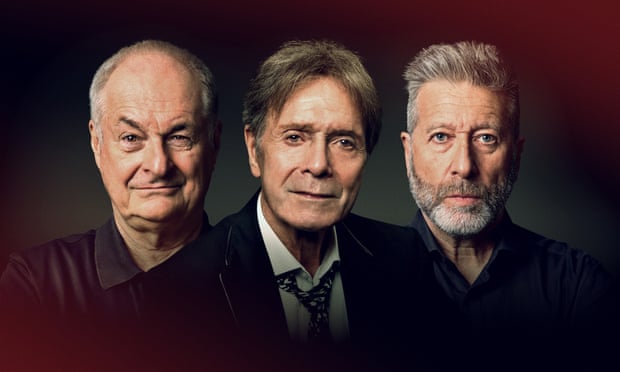
There is film of Gambaccini and Fox during their long time on bail, looking shellshocked. Also of Gambaccini, raging on The Victoria Derbyshire Show. Richard says he prayed every night: “I know it’s not true. And God knows it’s not true.”
What a mess: accusations, devastated spouses, tanked careers. Magistrates in Fox’s trial said they believed his accusers – though as Fox firmly points out, he was acquitted. Richard and Gambaccini were never charged. Both Operation Yewtree and BBC wrongdoing loom large in this story. Richard felt bad when he successfully sued the latter: “It’s like suing Britain.” Gambaccini, who successfully campaigned to reduce the maximum time for pre-charge bail to 28 days, says: “The BBC couldn’t wait to drop me.” It’s a documentary that makes you vacillate back and forth: a decent point is made about the ushering in of the #MeToo era, but here, other concerns – media responsibility; people publicly disgraced before they’re formally charged – firmly reposition the focus on the accused.
Do Americans realise that every time they say “soccer”, a football fairy dies? That aside, Disney+’s Welcome to Wrexham football docuseries is something of a “warm fuzzies” heartbreaker.
Hollywood actors Ryan Reynolds and Rob McElhenney, both from working-class backgrounds, bizarrely bid to buy the Welsh football club Wrexham AFC: denizens of the world’s oldest international football stadium, battered by the pandemic, struggling to get out of the fifth-tier National League. After the offer is graciously accepted (their arms are bitten off!), the unlikely Hollywood owners wisely take a back-ish seat to the darkly witty Wrexham folk, who love their team almost as much as they love slagging them off: “He puts in the shift, doesn’t he?” “So do the postmen. You wouldn’t play them on the wing.”
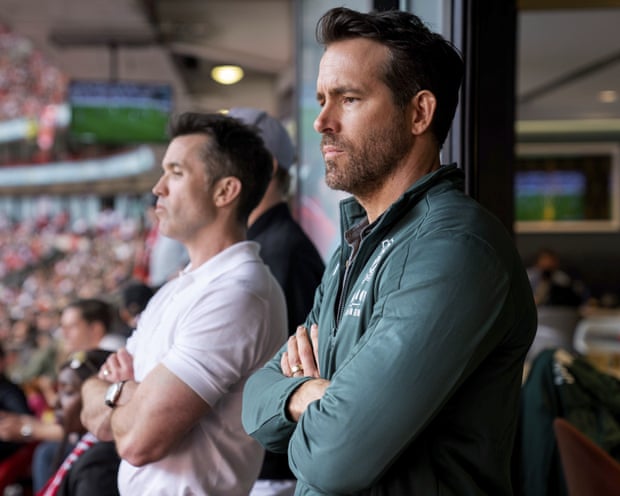
You can learn Wrexham FC’s fate in the 2020-21 season with a quick Google; here, it’s the journey that counts. McElhenney is said to have been inspired by Netflix’s amazing docuseries Sunderland ’Til I Die. He and Reynolds seem sufficiently self-aware (“There’s a version of this story where we’re the villains”). While the Hollywood/ small-town-Wales culture clash isn’t ignored (there are onscreen tongue-in-cheek translations for American audiences), it isn’t overplayed. What emerges feels akin to a real-life (actually funnier) Ted Lasso, with a muddy splash of Local Hero thrown in.
I watched Pamela Gordon’s 90-minute BBC Two documentary Lion: The Rise and Fall of the Marsh Pride through splayed fingers. This is an update on the mighty Kenyan pride of lions filmed extensively over four decades, perhaps most famously by BBC One’s Big Cat Diary. Their numbers are now severely depleted, not least because of illegal poisonings by Maasai tribespeople, who are anxious for their livestock, with a tragic knock-on effect for other Kenyan wildlife.
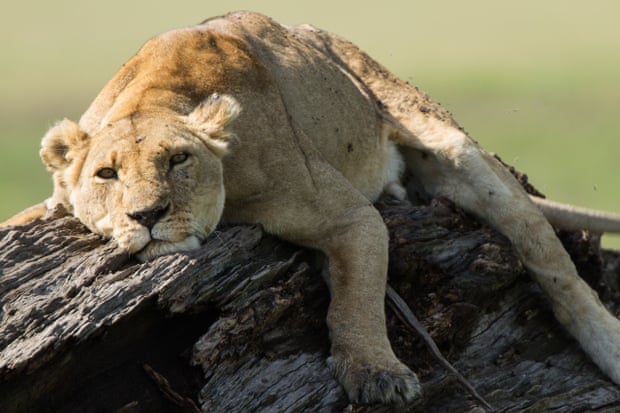
With archive footage and fresh observations from the likes of Simon King and Jonathan Scott, this is a gruelling but valuable watch. The lions are one moment majestic, brutal, complex, ever-wary of danger (lionesses hiding their cubs in fig trees), the next ragged, panting, staggering or dead. This fine documentary reminds the viewer that nature isn’t a Hallmark card, and that conservation should be a doing word.
Star ratings (out of five)
House of the Dragon ★★★★
The Accused: National Treasures on Trial ★★★
Welcome to Wrexham ★★★
Lion: The Rise and Fall of the Marsh Pride ★★★★
What else I’m watching
Agatha Christie’s Hjerson
More 4
Here’s something a little off the beaten track: a Swedish Agatha Christie-inspired drama series. It features the fictional Finnish detective created by Hercule Poirot’s scatty novelist friend Ariadne Oliver, but updated to the present day.
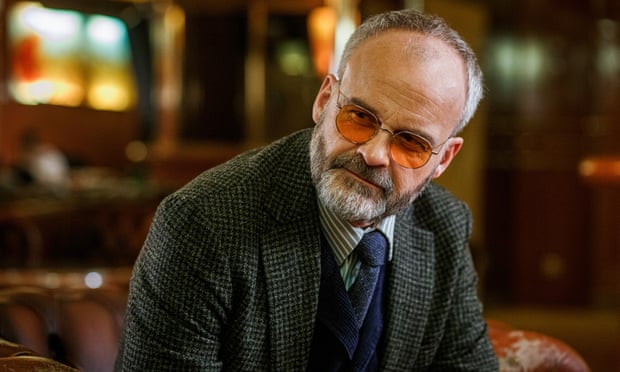
Investigating Diana: Death in Paris
Channel 4
As the 25th anniversary of the 1997 demise of Diana, Princess of Wales approaches, this four-episode docuseries looks into her untimely death in Paris and the tsunami of conspiracy theories that followed.
Buddha of Suburbia
BBC Four
What a treat. A repeat of the groundbreaking 1993 series, starring Naveen Andrews as a mixed-race teenager tussling with his cultural and sexual identity. It’s accompanied by a 2014 documentary on Hanif Kureishi, who wrote the novel it’s based on and co-wrote the screenplay.
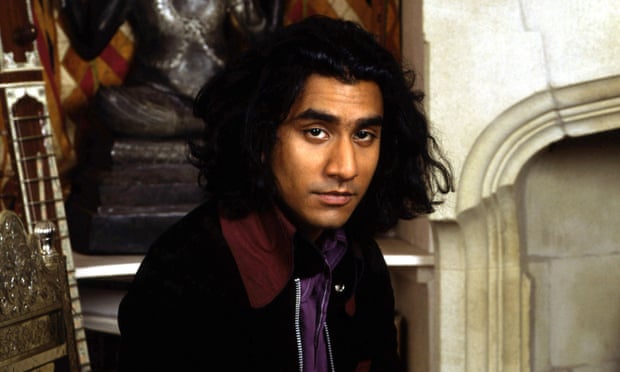





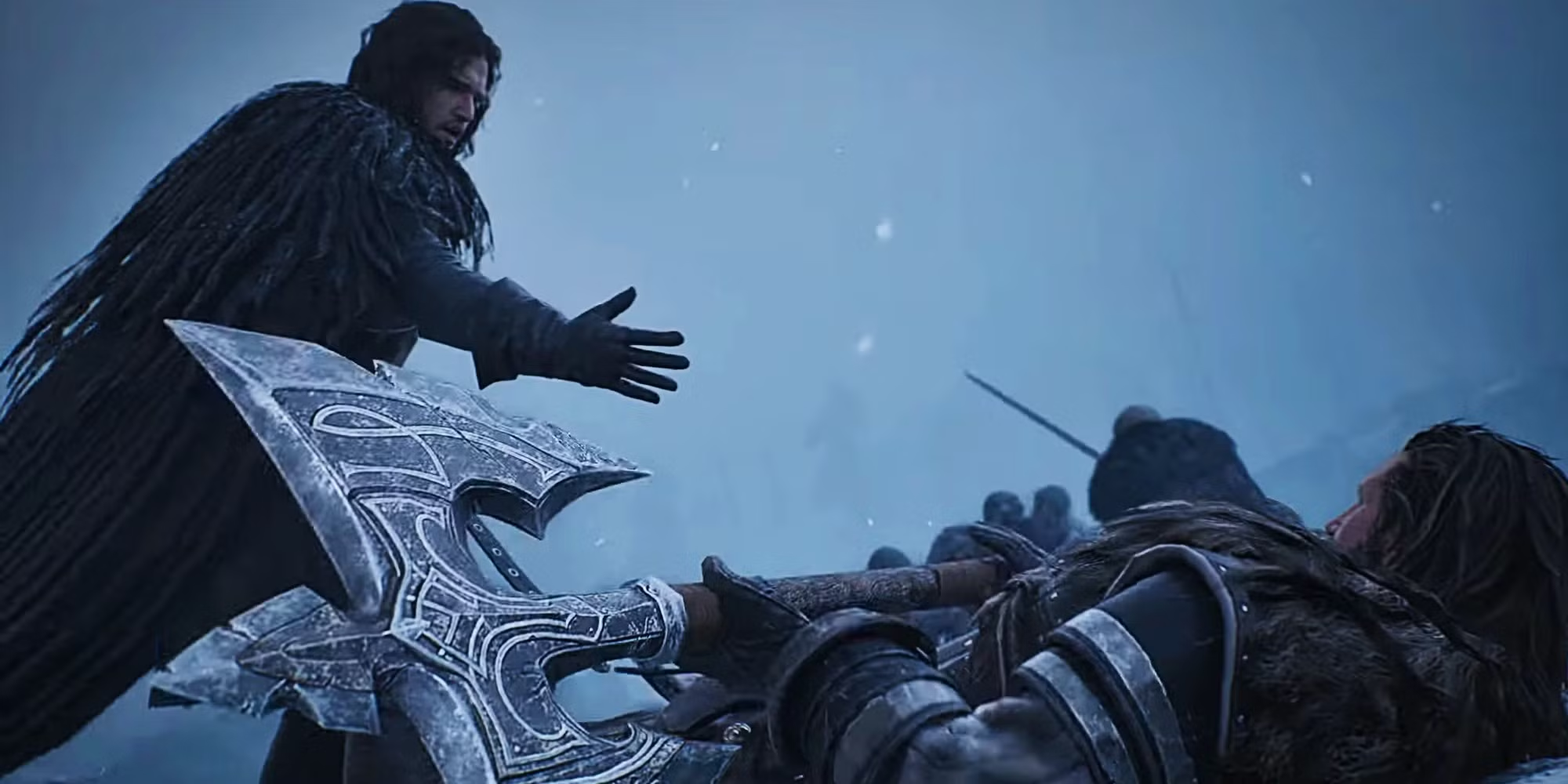














![[Book Review] The Blade Itself (The First Law Trilogy) by Joe Abercrombie](https://bendthekneegot.com/wp-content/uploads/2018/01/1516047103_maxresdefault-218x150.jpg)
















